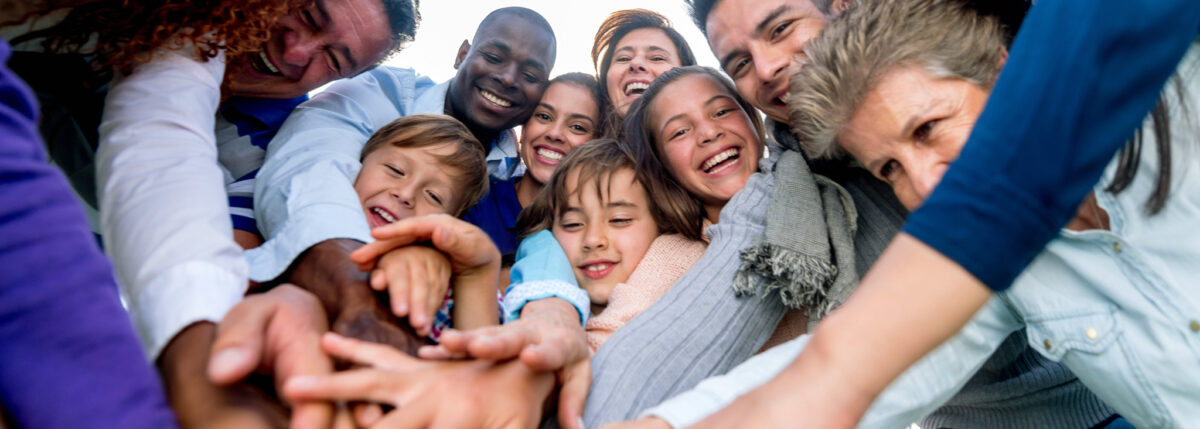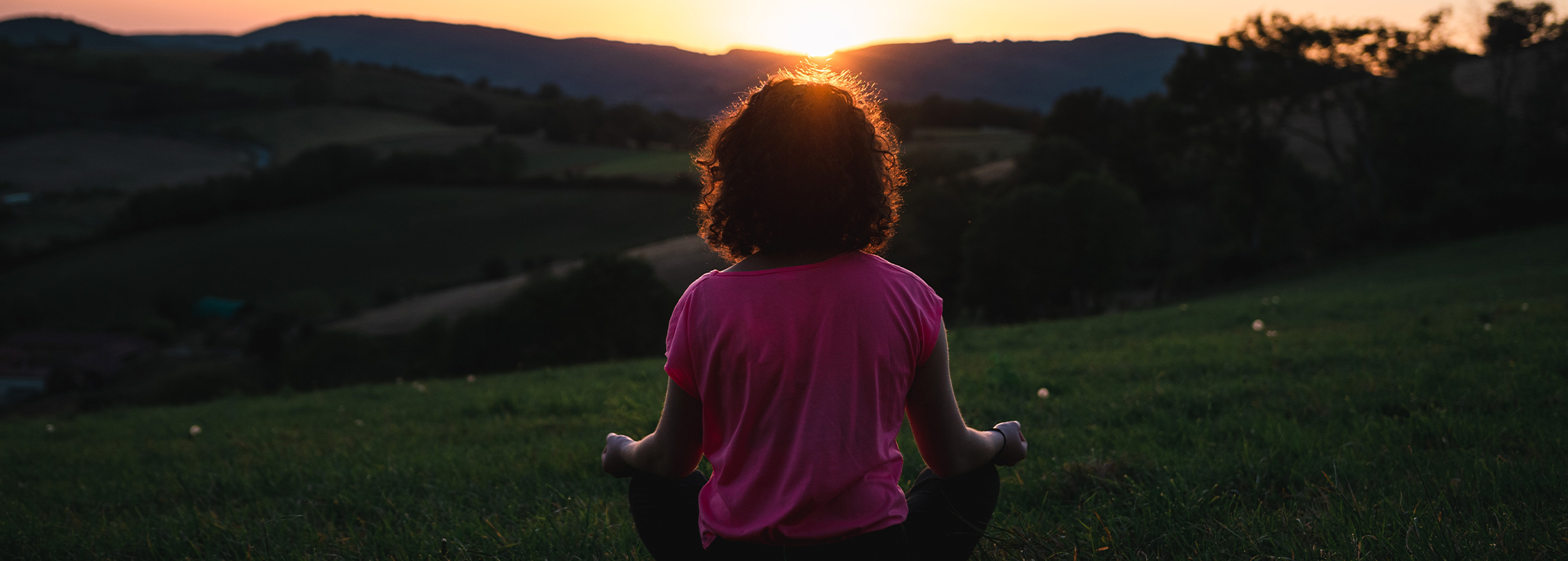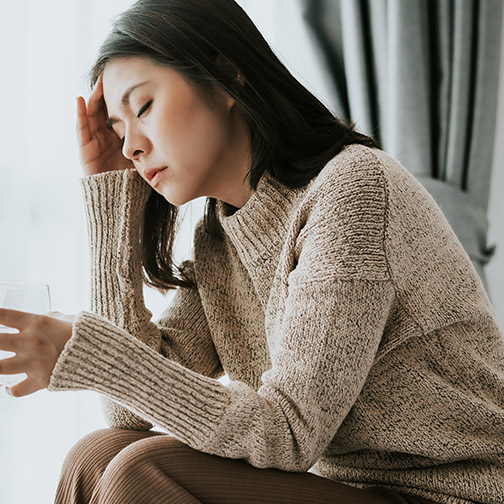Mental Health Holiday Check-In
Written by: Beyond Type 1 Editorial Team
7 minute read
December 18, 2020
The holidays already present many challenges to our mental health, and this year may be especially difficult as we navigate our way through the COVID pandemic. Our team took the opportunity to ask questions and get clarity about the things we’re struggling with and thinking about. We had a roundtable discussion with clinical psychologist, certified diabetes educator and Beyond Type 1 Leadership Council Member Dr. Mark Heyman about best strategies for getting through this winter and preparing ourselves for a unique holiday season.
For more mental health + diabetes content, check out Dr. Heyman’s podcast at thediabetespsychologist.com
Lala: I don’t live near family, they’re not within driving distance, and I’m gearing up for a holiday on my own. How do I manage anticipatory anxiety and depression heading into the holiday?
Dr. Heyman: One is anticipating the anxiety and depression, and two is prepping yourself for those things. Knowing it and recognizing that in yourself and knowing that your situation is that you can’t see friends and family during this time is really important. Being able to make a plan and prepare for that in that situation is helpful; knowing what your coping strategies can be, keep recognizing that things are going to be hard for you, and put some things in place to be able to help you. For example, have a time when you can talk to your friends and family on the phone, FaceTime, or on Zoom.
Make a plan so that you know that you can look forward to that and that you have those things to look forward to. Also, that gives you some comfort, knowing what to expect, knowing that you may be having a hard time, and so putting some plans in place and putting some structure in place around you that can help you. Having things to look forward to, and recognizing that things are going to be hard and there may not be much you can do about that right now, but that you can recognize that you have the ability to handle that, and that you’ll get through this, and that we’ll all get through this together. This isn’t going to last forever, and that there’s going to be a light at the end of the tunnel, whenever that might be.
Dana: I won’t be going home for the holidays this year to see my family. Do you have any tips for coping with jealousy or feelings of resentment for people who have decided to make maybe a riskier choice or a different calculation than we are?
The first thing is recognizing that your feeling of jealousy or resentment are normal. I would expect you to have those types of feelings because you’re making a tough choice and other people may not be, and other people may have a higher risk tolerance than you, and that’s a totally normal thing. Being okay, recognizing and validating the fact that your feelings, while they’re not pleasant, they’re a normal part of the process.
The second thing is remembering your why. When things get tough we oftentimes think to ourselves, “Why am I doing this?” You have a really good reason for not getting on a plane and not going to see family far away, and that’s because you care about them, you care about your health, and want to keep yourself safe. By keeping that in mind and remembering your why can be a valuable thing because it can keep you strong when those feelings of resentment really come up for you.
Todd: What advice would you give to someone concerned about overeating?
Don’t be so hard on yourself. This is a tough time in general, aside from the pandemic, to eat healthy. Have some compassion for yourself.
The second thing is, I always like making a plan for what you’re going to eat, especially around the holidays. If you tell yourself, “I’m going to be ‘good,’ and I’m not going to eat anything with any carbohydrates in it, or I’m not going to eat anything that’s off of my regular meal plan.” You’re setting yourself up for failure, especially around the holidays and especially with COVID.
If you say to yourself, “Okay, after dinner tonight, I’m going to have two cookies and I’m going to have… That’s my plan.” And then you go into dinner, and you have those two cookies after, then you followed your plan and you didn’t allow yourself to go beyond that, but having a plan helps you to keep those boundaries up.
If you go into after dinner and you say, “I’m going to have dessert.” But, you don’t really define what dessert is, it’s very easy for it to get out of control. The same thing goes for, if you’re having a small Thanksgiving gathering with close friends or family, saying, “This is my plan for Thanksgiving dinner. I’m going to have this for my appetizer, I’m going to have this during dinner, I’m going to have this for dessert.” If you follow that plan, you’re not feeling restricted in your food, you’re feeling like you’re following the plan that you set out. Hopefully the plan you set out is going to keep you satisfied, allow you to have the foods that you really want to enjoy and also enjoy the meal that you’re having.
T’ara: For those of us who are always used to being on the go, how can we just slow ourselves down? Do you have any tips for getting into meditation and sticking with it?
We find all kinds of things to do to avoid our negative emotions, it’s a part of the human experience. Whether we’re eating, staying busy, or drinking, humans find all kinds of very creative ways to avoid that anxiety, and so recognizing that is a really great first step.
You bring up meditation and mindfulness, and for those of you who don’t know, mindfulness is being present, staying in the present moment and absorbing what you’re experiencing the present moment without judging it. In your situation, you may be really anxious, and you may be really wanting to go and do something and stay busy. At its core, mindfulness and meditation would be just recognizing that’s your desire, but then you’re going to choose something different. You’re not going to judge yourself for having that anxiety, you’re not going to judge yourself for wanting to do it, but you’re going to choose to do something different. You’re going to say, “My feelings are telling me one thing, but I’m going to choose to just observe what I’m feeling, but not act on it.”
In terms of meditation and mindfulness, practice is really the key. You have to practice it, and the best time to practice it is when you’re not stressed because that builds your muscle, that helps you to learn how to do it when stress hits. I love mindfulness apps, there are lots of great ones out there, Headspace and Calm are the two that come to mind, or you can download free mindfulness exercises from YouTube or from anywhere on the internet. I really recommend doing it on a regular basis, on a daily basis if possible, for five or 10 minutes, and I recommend doing it in a guided way.
The hope is that when you do mindfulness, you sit down for 10 minutes every morning and do it, that when you’re out in the world and things get stressful, you’re able to draw on those skills. You can use mindfulness at that moment and bring yourself back to the present because when you’re trying to stay busy and you’re not in the present moment your mind is somewhere else. We want to bring your mind back and just recognize whatever you’re experiencing, and at this time of year, and in this situation, you may be experiencing some pretty uncomfortable things, and that’s okay. Mindfulness can help you to recognize that you can handle it.
Jordan: Do you have any tips for separating out mental distractions and things like anxiety, and depression, and focusing on what’s most important?
I would recommend a couple of things. The first is mindfulness and working to stay in the present moment, it’s really hard to get overwhelmed when you’re in the present moment. You get overwhelmed in your mind when your mind wanders off into the future and you start thinking about the ‘what ifs’ and the ‘what I have to dos’ and all of those things. But, when you’re here and now, it’s imperative to focus on what you’re doing right here. It’s hard for me to focus on anything in my future when I’m focusing on our conversation right now.
And so, being able to stay in the present moment and just be here is an important thing. And, by the way, when you’re trying to be in the present moment, your mind’s going to wander off to the future and that’s totally normal and expected! That’s okay, but what we want to help you do is when you notice that happening, bring yourself back. The other thing in terms of staying focused is, recognizing what are the things that are most important. I make a list of things I need to do every day, and it’s rare that I actually achieve them all because I get overwhelmed, and also I have too much on my list. But, if you’re able, on a daily basis, or if this is too much even on an hourly basis, say, “This hour, I need to focus on writing this article, on this hour I need to focus on spending time with my wife, this hour I need to spend focus on that one thing” you’ll find yourself being less distracted overall.
Mariana: If you feel like you’re struggling with anxiety or depression or loneliness, how do you know when it’s time to turn to someone for help? And where should you turn?
The short answer is if you’re feeling overwhelmed, if you feel anxiety or depression, is to do things that have helped you in the past. Whether that’s calling a friend, taking a walk, or reading a book, and just trying those things out. Those are your first line of defense, having support, having activities that you enjoy. If you find that those aren’t working, there are a couple of signs I would look out for to see whether or not you need a higher level of care, or whether you need to have professional help. One is if your emotional state is impacting your ability to live your life as you want to, so your ability to go to school or go to work, it’s impacting your relationships, and that can be a good sign.
If you’re feeling hopeless or helpless, or you’re not enjoying things in life, and you feel like you don’t have the ability to enjoy things that you used to enjoy, that’s a sign that you need help and something to look out for. In terms of where to get help, there are lots of great options for therapy out there right now. The silver lining with the pandemic is, now almost every therapist is doing telehealth, and so you’re able to see somebody over a video.
If your issue is diabetes-specific and you feel like your therapists really need to understand diabetes to really help you, the American Diabetes Association and the American Psychological Association have a great resource where you’re able to search for therapists who have expertise in diabetes.
If you’re dealing with things around the holidays and just feeling overwhelmed and dealing with the pandemic, you probably don’t need someone with diabetes-specific experience. I would recommend asking a trusted friend or family if they have a recommendation, if you don’t have that support looking at resources like Psychology Today is a great place to find a therapist. There are also some great companies like BetterHelp and Talkspace, which are text-based therapy. From people that I know who have used them, they have actually had great results and they rave about it.
*Edited for content and clarity
Watch the entire roundtable discussion in full:
[bt1-youtube id=”/fNiRH5mcLZY” type=”inline” image=””]
Get more regarding mental health + COVID-19—Mental Health and Coping with Coronavirus.

Author
Beyond Type 1 Editorial Team
This piece was authored collaboratively by the Beyond Type 1 Editorial Team. Members of that team include Director of Content Todd Boudreaux, Senior Program Manager Mariana Gómez, Director of Brand Communications Dana Howe, Senior Project Manager Jordan Dakin and Editorial Associate Makaila Heifner.
Related Resources

Breakthrough T1D Advocates are volunteers who use their voices and personal stories to communicate the...
Read more

While there is still no exact cause of type 1 diabetes (T1D) or cure, new...
Read more

Living with a chronic condition like type 1 diabetes (T1D) can impact your mental health...
Read more

